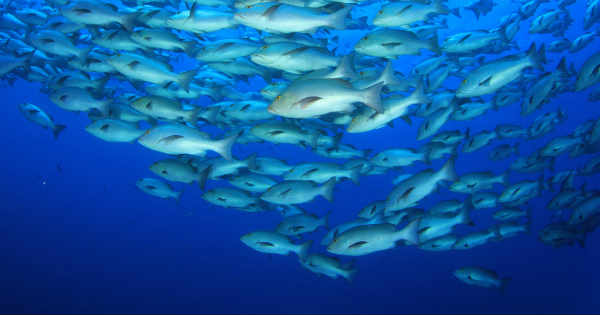It is very strange to accept the fact that the number of fishes being pulled down out of the ocean have fallen by nearly 5% as the fish stocks are tremendously affected by the rise in sea temperatures.
As per the recent analysis examining data from around the world, cod, herring and varied shellfish species are the creatures which are already suffering.
The reason for the devastation is getting worse by over-fishing and threatening the livelihoods of around 56 million people who particularly rely on fisheries for their survival.
The decline has been more in the major fishing regions like East China Sea and the North Sea, where climate-induced losses have been as high as 35%.
The new findings are a not so pleasant reminder that climate change is now a reality, the soaring ocean temperatures are expected to cause damage with marine ecosystems in the future.
The analysis was done by examining the fishing data on maximum sustainable catches stretching back to 1930, covering almost 235 populations of 124 marine species, and linked it with changes in ocean temperatures.
In totality, it almost represented a third of the catch from around the world across this period. However, the scientists noticed that this climate change is yielding some winners too. Like for instance, the black sea-bass population in the mid-Atlantic have thrived, whereas their fellow fish have entered a downward spiral.
Sadly, this positive trend is not supposed to last for long. The species which have benefited from warming till date are likely to start declining because of the continuous rise in temperatures. The ocean temperatures would shoot to 3.2°C by the end of this century if no serious action is being taken by the world governments to cut global greenhouse gas emissions.
The constitution of ocean acidification would be another cause of damage leading to higher CO2 levels in the atmosphere. This would also change the water’s oxygen content.
Dr. Chris Free, a University of California, Santa Barbara scientist who led this research recommends that fisheries managers should eliminate over-fishing, rebuild fisheries and also account for climate change in fisheries management decisions.
Not only this, the policymakers can prepare for regional disparities in fish catches by simply establishing trade agreements and partnerships to share seafood between winning and losing regions.
Image Credit: The Ocean Action Agenda
Please Note: Any information picked from here must be attributed to skymetweather.com




